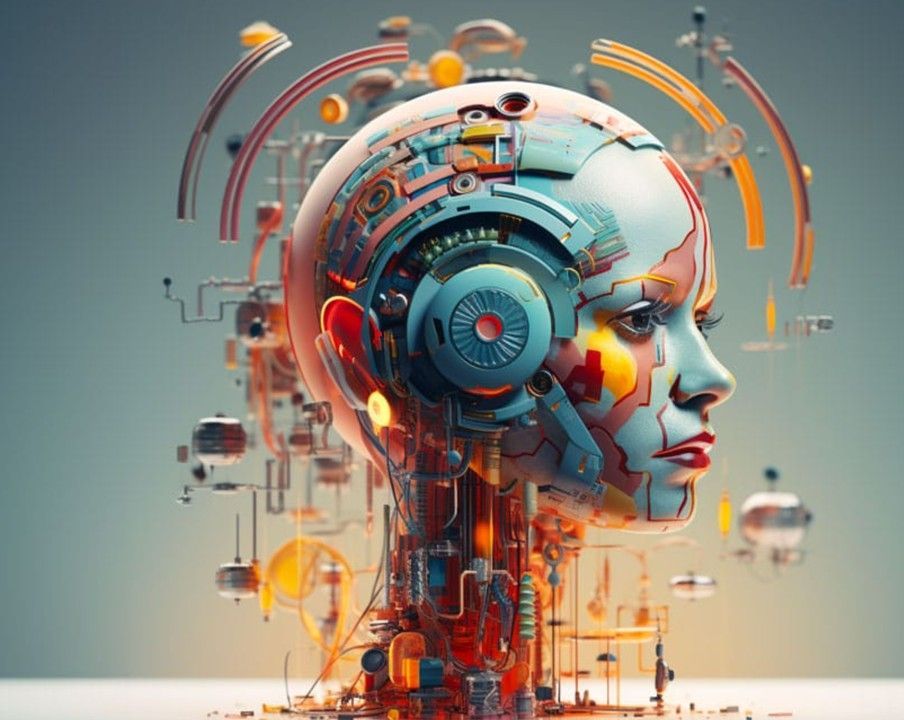Artificial Intelligence (AI) has transformed many aspects of business operations, but its role in workflow management is excelling. AI agents embedded within workflow processes can automate, optimize, and intelligently execute tasks that traditionally required significant human intervention. This article explores the concept of using AI agents as workflow processes, highlighting their benefits, applications, and future potential.
Understanding AI Agents in Workflow
AI agents are software entities capable of performing actions autonomously, learning from their experiences, and adapting their operations over time. When integrated into workflow processes, these agents act as intelligent assistants, decision-makers, and even strategists within the workflow environment.
By embedding AI into workflow processes, organizations can achieve a higher degree of efficiency, accuracy, and adaptability. Traditional workflow automation handles repetitive tasks based on predefined rules, but AI-enhanced workflows can handle complex decisions and adapt dynamically to new scenarios and data.
How AI Agents Enhance Workflow Processes
Dynamic Decision-Making
Unlike conventional workflow engines that rely solely on rule-based logic, AI agents incorporate machine learning (ML) algorithms that enable them to evaluate complex scenarios and make context-sensitive decisions. This capability significantly enhances decision-making efficiency, especially in environments where inputs and outcomes vary frequently.
Predictive Capabilities
AI agents utilize predictive analytics to foresee bottlenecks, inefficiencies, or potential failures in workflow processes. By analyzing historical and real-time data, AI can predict disruptions and proactively suggest or implement corrective actions, ensuring smoother operational flows.
Continuous Optimization
AI agents continuously learn and adapt, enabling workflows to evolve based on real-world performance data. Through reinforcement learning and other adaptive methods, these agents iteratively refine processes, enhancing efficiency, accuracy, and responsiveness over time.
Applications of AI Agents in Workflow
Customer Service Automation
AI-powered workflows can streamline customer interactions by intelligently routing queries to the appropriate human agents or handling routine requests autonomously. By analyzing past interactions, AI agents can predict customer needs and offer tailored solutions, significantly improving response times and customer satisfaction.
Intelligent Document Processing
AI agents are instrumental in managing and automating document-centric workflows. They can intelligently classify, validate, and route documents based on content analysis, significantly reducing manual review processes and minimizing errors.
Supply Chain Management
AI agents improve supply chain workflows by dynamically adjusting operations in response to real-time events. Whether dealing with delays, inventory shortages, or demand spikes, AI agents can rapidly analyze data and implement optimized decisions, enhancing supply chain resilience and efficiency.
IT and Security Operations
AI-driven workflows automate threat detection, response, and incident management. AI agents continuously monitor systems, analyze threats, and execute predefined security workflows, ensuring rapid mitigation of security risks and maintaining robust cyber resilience.
Implementing AI Agents into Your Workflow
Integrating AI agents into workflow processes involves several critical steps:
- Define clear objectives: Establish specific business outcomes the AI-enhanced workflow should achieve.
- Select appropriate AI technologies: Choose suitable ML models and AI frameworks tailored to your workflow needs.
- Integrate and train: Seamlessly integrate AI agents with existing workflow systems and train them with relevant historical data.
- Monitor and refine: Continuously monitor AI-driven workflows, collect feedback, and iteratively refine the models for optimal performance.
Benefits of AI-Enhanced Workflow Processes
Improved Efficiency
AI agents significantly reduce processing times by automating and intelligently managing tasks, allowing human workers to focus on higher-value activities.
Increased Accuracy
By minimizing manual interventions and using intelligent decision-making, AI agents help reduce errors, ensuring higher reliability and consistency in workflows.
Enhanced Flexibility
AI-driven workflows are highly adaptable, rapidly adjusting to new data or changes in operational conditions. This flexibility ensures organizations remain agile and responsive.
Cost Reduction
Automating complex and repetitive tasks through AI agents reduces operational costs by minimizing human labor requirements and enhancing overall productivity.
Challenges of Agent AI in workflow
While the benefits are substantial, integrating AI into workflows presents several challenges:
- Data Quality: AI agents require accurate and clean data for effective decision-making. Poor data quality can significantly impact performance.
- Model Explainability: Complex AI models, especially those involving deep learning, can be difficult to interpret, creating challenges in compliance and transparency.
- Integration Complexity: Seamlessly embedding AI agents into existing workflows demands technical expertise, proper integration planning, and potential infrastructure changes.
Future of AI Agents in Workflow
Looking forward, AI agents will become increasingly sophisticated, further enhancing their role within workflows. Advances in natural language processing (NLP), computer vision, and reinforcement learning will allow workflows to manage more intricate tasks, from nuanced decision-making to complex strategic operations.
Furthermore, AI agents will likely integrate deeply with emerging technologies such as the Internet of Things (IoT) and blockchain, creating smarter, more secure, and seamlessly interconnected workflow systems. Ready to see our platform in action? Schedule a demo to explore its features and discover how it can transform your organization’s ROI using workflow automation.







